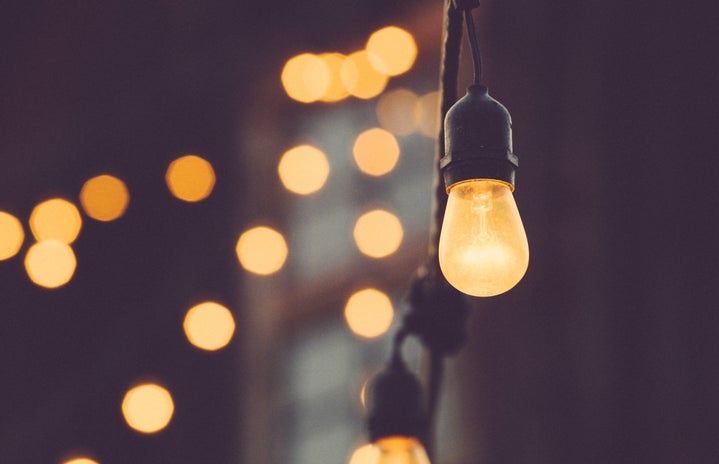They say that there are three major events in a person’s life: birth, marriage, and death. Those are the fulcrums of time— what we measure our lives by in eventualities.
I have always been told that “one day” I’m going to find someone, I’m going to get married, I’m going to have kids, and then my life will eventually come to an un-climactic, peaceful end after I mercy my individuality to the service of “making a family”. “Just wait you’ll find someone soon” my mother would echo, “It’s when you least expect it.” I could never quite place why that sounded more as a warning than a promise.
The concept of “finding the one” seems an uphill schlep to the precipice of suburban dwelling—an undoubtedly privileged concept, and yet a limiting expectation. Yes, we’re encouraged as young women and men to have careers, to carve our mark however small, but never forgetting that our primary modem, the ultimate assumption, is that we, eventually, will be subsumed by something greater—love, or at the very least, the temporary pretense of it.
From middle school when relationships entered my consciousness, to high school when they preoccupied my daydreams, to now, when I look at them as an objective example of my inability to be “normal”, the concept of a “relationship”, or lack thereof, has eluded me. I’ve passed from school to school, age to age, constantly reassured that “the one” will eventually find me—a promise of an inevitability. Increasingly, I’ve found myself terrified at the aspect I’ll never grab hold of it. And terrified more so, that finding love occupies so much of my mental space, that I allow it so much efficacy over how I view myself.
I decided to count one week consciously of how many times I complained about it vocally. I looked over text messages and half-remembered conversations. I came to the realization that, I hadn’t passed the Bechdel Test in my own life. Day in and day out, repetitively—“he’s cute right?” “I’m apparently too disgusting to find love LOL,” “I literally can’t stand couples, do they have to shove it in everyone’s faces that they’re happy?” All of it thinly steeped in bitterness, like tea gone cold. All of it underscored by the implicit sentiment that love would affirm my identity, that someone else was necessary to constitute my self-concept. That I needed someone.
Another person, “the one,” is posited in our lives as a necessary additive, rather than what it ought to be- a genuine, unmanufactured, unforced companionship. Something that happens coincidentally, serendipitously like a midafternoon sun shower. It should not be an expectation that garners inferiority, or self-doubt.
Anyone who has ever been forcibly thrust on a blind date knows what I’m talking about. All too often, at Davidson (where we are apt to comparison and therefore to feelings of inferiority), many of us look at relationships in this way—a notch on the belt, a reflection of our inability or ability, of our desirability, of our “normality.” (Not to mention that this perpetuation of the “relationship” often excludes a-romantic identities.)
I write all this with the intention to resolve within myself the idea that I am enough singular as I am plural. But that doesn’t remove that aching, elusive feeling of missing someone.
I say this to the person who feels as though their “singleness” is not something which needs to be corrected or lorded over in shame. To quote the old standard, one is the loneliest number, but two can be as bad as one. Because implicit in regarding another person as an additive to our lives is the notion that ourselves, alone and unqualified, are reduced, are less than, are not enough. To be young and unattached, is far better, I think, to relationships made through a compelled, rushed believed-necessity.

